(This week’s blog was written by Alecko Eskandarian (@alecko11), former US National Team player and current Assistant Coach of the NY Cosmos of the NASL. This article originally appeared 11/18/16 on the Players Tribune and they have graciously granted us permission to reprint it. We have read many articles about concussions, and this one really hit home on how quickly life can change for an athlete with a concussion. Concussions are not a soccer problem; they are a problem across all sports. Thanks to Alecko for addressing such an important topic and for allowing us to reprint.)
My teammate and I were standing outside RFK Stadium in Washington, D.C. It was April 2003, our first home game of the season against the Chicago Fire. It was my first official appearance as a professional soccer player. It was a dream come true.
“Let’s take a picture,” he said. “I feel like this is a day we definitely want to remember.” He handed someone his digital camera, we posed together and smiled.
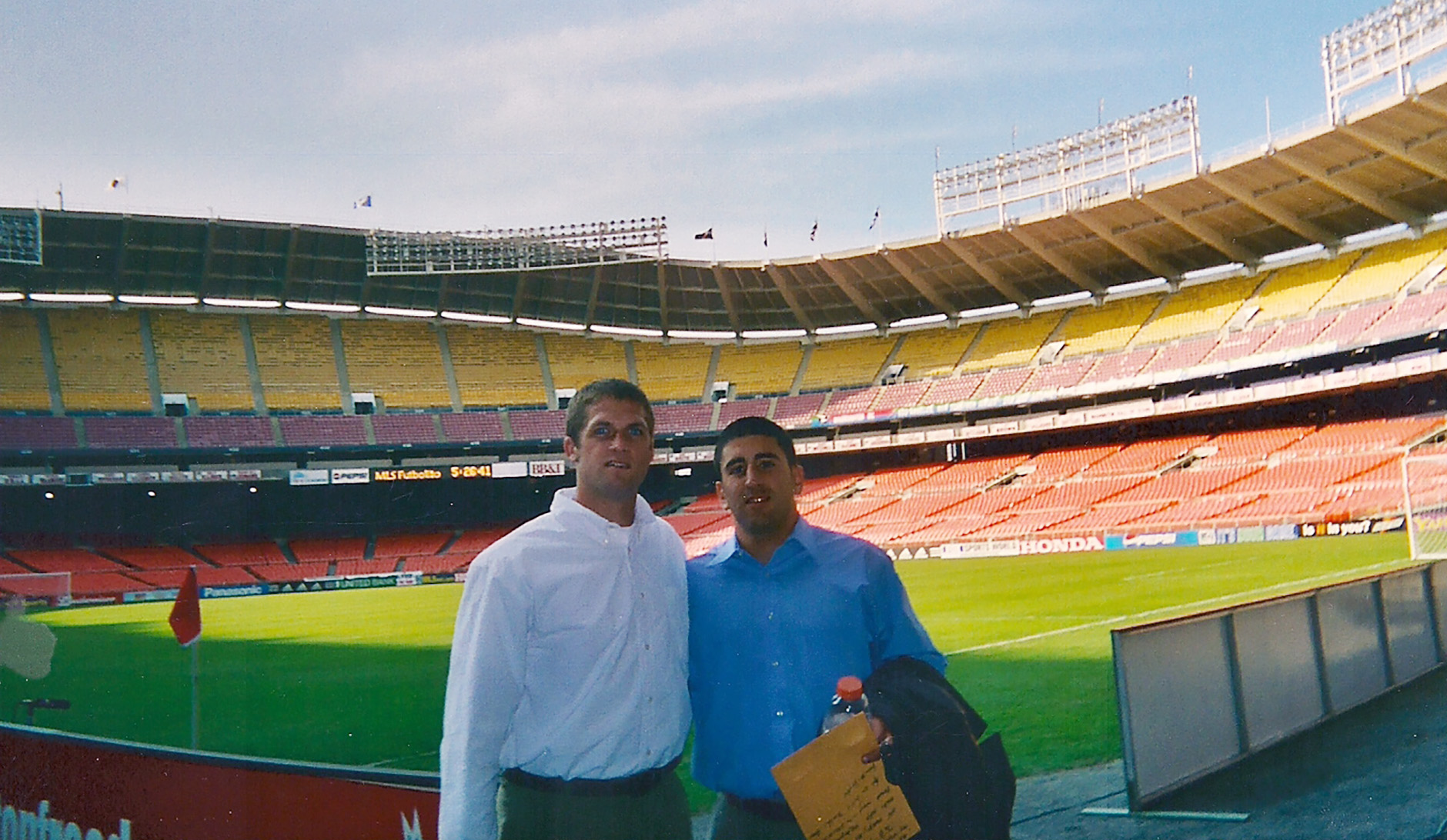
I was a 20-year-old rookie — picked No. 1 by D.C. United in the MLS SuperDraft just a few months prior. I hadn’t played against Kansas City in our season opener, so I had made sure to bust my ass in practice that week. A few days before the game, Coach had even pulled me aside to let me know that he was going to try to get me some minutes. So I put the word out to family and friends. My parents drove down from New Jersey, my cousin flew in from L.A., some friends came up from the University of Virginia.
But I don’t remember seeing anyone at the match. I don’t remember my name being announced over the loudspeaker. I don’t remember the roar of the crowd and the bright lights.
I don’t even remember stepping onto the field.
Shortly after I came off the bench in the 65th minute, I found myself on the wrong end of a major collision while jumping for a header. I got undercut, flipped over and landed on my head. I didn’t know it at the time, but the first game of my rookie season was the beginning of the end of my professional soccer career.
The photo we took two hours before the match would be the last thing I remembered until I ended up at the hospital later that night.
I was told that after the game, my mom and dad were waiting outside the locker room for me, but I walked right by them. I didn’t even acknowledge their presence. My team doctor had to explain that I had suffered a head injury and would be heading to the hospital to make sure my brain was not bleeding.
You know when someone claps their hands in front of your face to snap you back into reality? Well, an hour or so later, out of the blue, that’s what I felt happen as I suddenly became aware of where I was. I looked around and noticed my family and friends beside me in the hospital waiting room.
“What are we doing here?” I asked.
“He is still pretty out of it,” I heard my mother tell my father in Armenian. Her voice, and then seeing my family and friends gathered around me, are the first things I can really remember since taking the photograph.
But I still had no idea what had happened.
“Alecko, you hit your head,” the doctors told me.
After a few hours of tests, all the scans on my brain had come back negative for any major brain injury. The only outward sign that anything had happened was the cast on my hand for the three fingers I had broken in the collision. As for my head, I was told to go home and get some rest, and if there were any problems, to call my team doctor immediately.
I didn’t have any idea how bad the fall was until I got to practice two days later and my coach pulled me into his office.
“Have you seen the video?” he asked me, his voice cracking and eyes welling up with tears. “You’re lucky to be walking, son.”
He showed me the tape. The slow-motion replay of my entire body weight crashing on top of my head and neck made me nauseous. It wasn’t until then that I also realized I had actually stayed in the game. I didn’t remember any of it. I just thought, I never want to see that again. And I wouldn’t for the next 12 years.
The crazy thing is, I still didn’t really understand the damage it had done to my brain.
Besides the doctors in the hospital, nobody ever mentioned the word concussion. And after a week of rest, I was back out playing and training with the team. Bullet dodged.
That is how my nightmare began.
Soccer brought my family to this country. My dad, Andranik, grew up an Armenian Christian in Tehran and became one of the best defenders in the history of the Iranian national team. After playing for Iran at the 1978 World Cup, he was selected to the World All-Star team that played an exhibition game at Giants Stadium against the New York Cosmos. Immediately after the match, the Cosmos offered him a contract. Despite interest from other top European clubs, my dad decided moving to the U.S. would be the best thing for our family. So my parents moved with my older brother to New York, and a few years later I was born, more or less with a soccer ball at my feet.
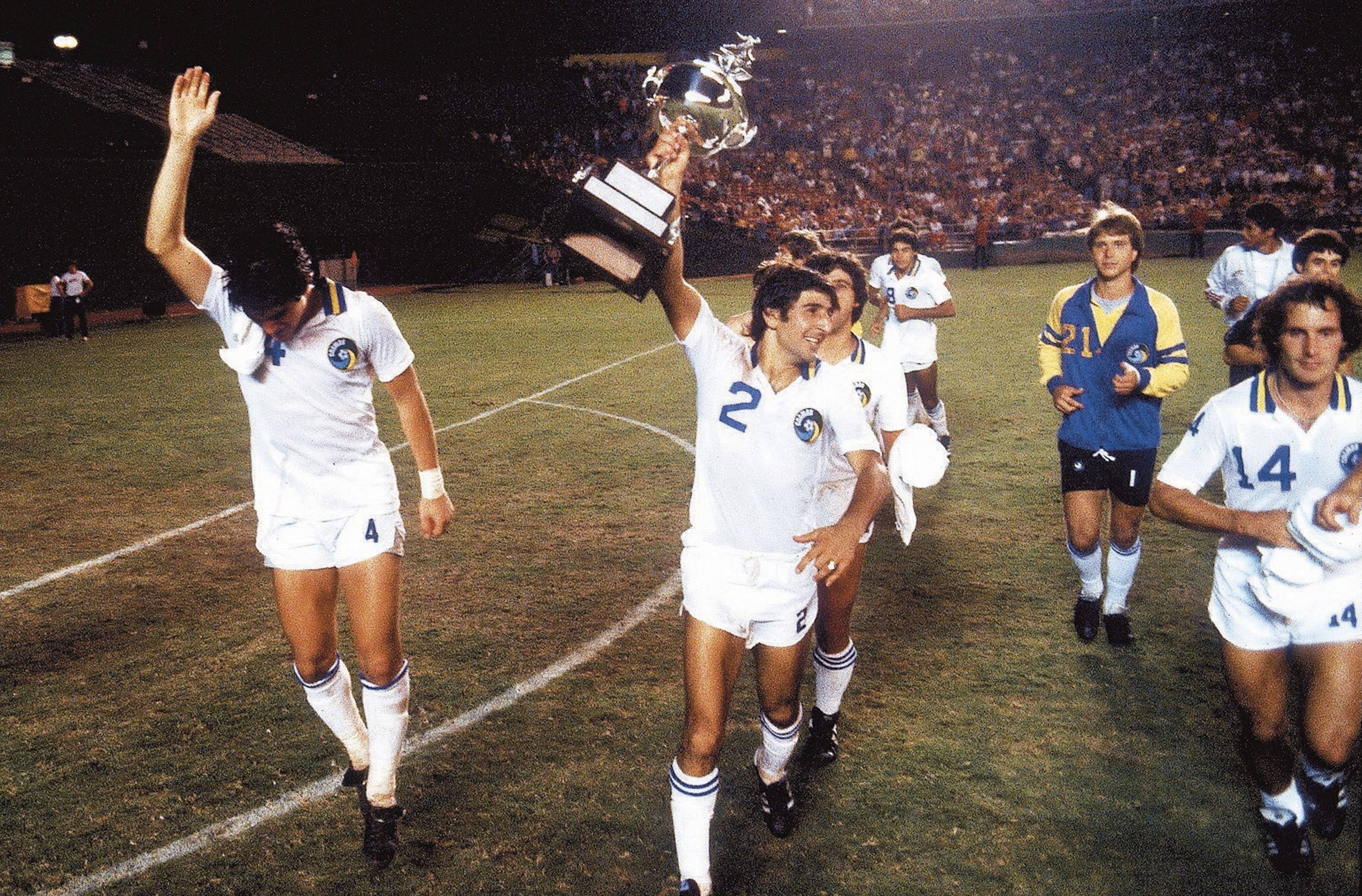
Not a single day went by in my childhood where I didn’t play soccer. Whether in our backyard, or in our basement, or at the park down the street from our house, or with my dad and his teammates — Giorgio Chinaglia, Carlos Alberto, Hubert Birkenmeier, even Pelé. To me, they were just friends who were always ready to kick the ball around with me.
Soccer was life for my family. In my elementary school yearbooks, my classmates and I had to write what we wanted to be when we grew up. Other kids wrote the usual: doctor, astronaut, police officer, and so on. Next to my name were three words, “Professional soccer player.”
Even off the pitch, soccer was an integral part of our lives. In 1982, Hubert had opened up Birkenmeier Sport Shop, one of the first and only soccer shops in the U.S. But in 1985, as the Cosmos roster went through a major upheaval, Hubert and my dad both got traded and had to relocate to continue their careers. My father had a different idea – he would instead choose to retire from pro soccer, buy the shop from Hubert, and plant our family roots in New Jersey.
The shop became my second home — and the place where everyone came to talk soccer. Almost every serious soccer player from northern New Jersey — including men’s national team stars Tony Meola, Tab Ramos, John Harkes, Gregg Berhalter, and Giuseppe Rossi — grew up coming to the shop. Sure, Dad’s store sold the newest cleats or kits, but mostly people would come by to talk soccer with my dad and Hubert, who had returned after finishing his playing career.
Meanwhile, I was busy following in my dad’s footsteps as a player. I was New Jersey’s high school player of the year in 2000 and won the Hermann Trophy as the top player in college soccer in ’02. By that time, I had already represented the U.S. in the FIFA U-20 World Cup. In ’04, I led the U.S. in scoring during Olympic qualifying. Despite getting my own trials with several European clubs, I knew that I wanted to be close to my family. After my junior season at UVA, I decided to enter the MLS draft.
My first game in MLS was supposed to be one I would never forget. Instead it was one that I cannot remember.
I was fortunate that Carlos Bocanegra, a defender for the Fire in that game, was looking out for my well-being. After I stayed on the field following my injury, he and other players actually alerted the referee and medical staff to get me out of the game. I’ve since been told that I was saying things that did not make any sense after the collision, cursing at guys, saying we were in San Francisco even as I was standing on the pitch in Washington, D.C.
Most people don’t really think of soccer as a contact sport, but that couldn’t be further from the truth.As the game has gotten more physical, and players have gotten faster and stronger, collisions have become more violent. The number of head injuries has been growing rapidly. Still, most don’t realize the seriousness of head injuries, how to identify them and most importantly, how to treat them.
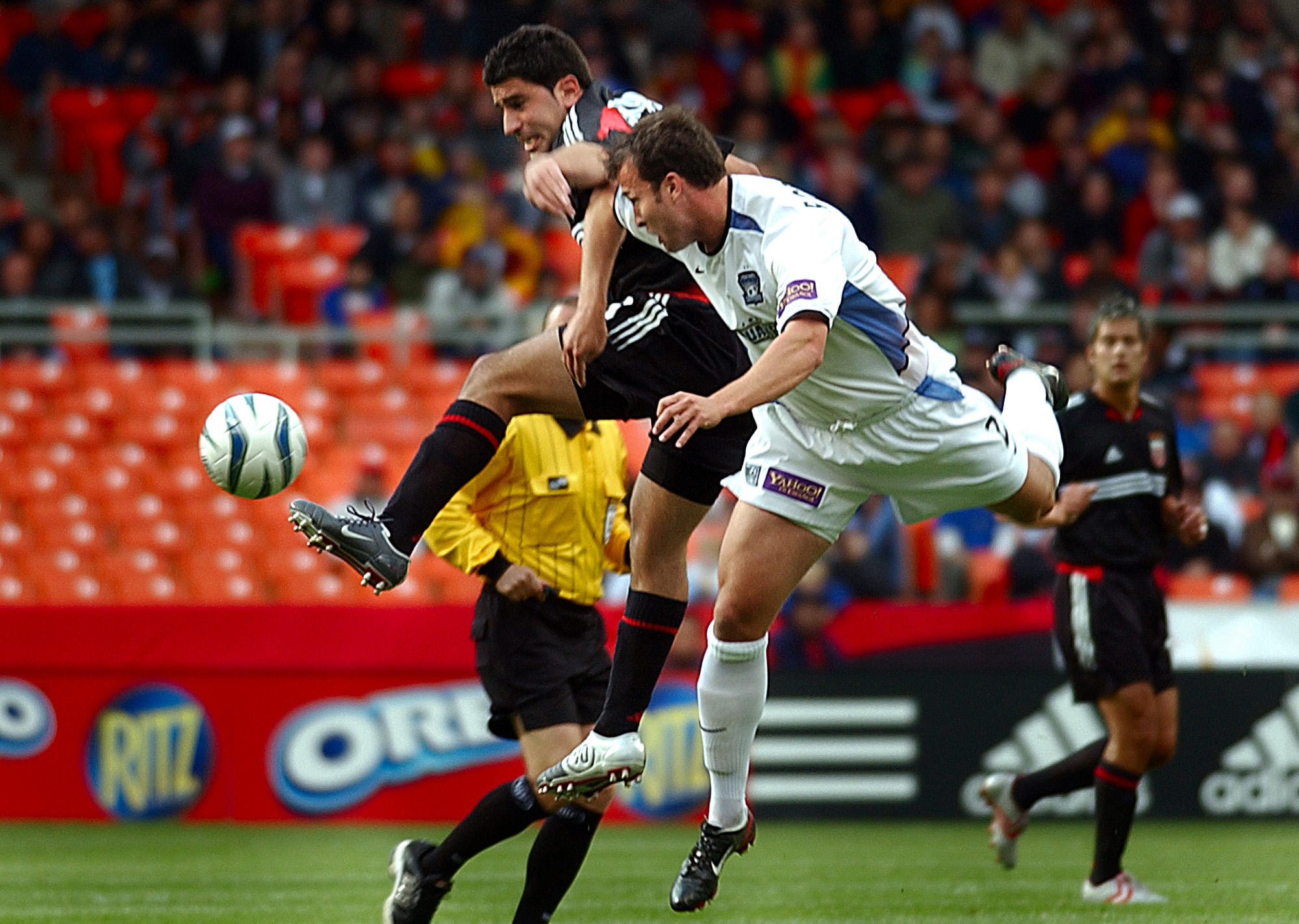
After getting knocked unconscious in my first game, I was back on the field in a week. All I needed to hear was that I had been cleared to play and that was enough for me.
It was the same story the following season when I was hit in the back of my head after a scuffle broke out during a match. “Just take a week off to get some rest,” our trainers told me. Once again I thought, As long as I’m cleared then I should be fine, right? That certainly seemed to be the way it worked out. I scored 14 goals that season, made the All-Star team and was named MLS Cup MVP as we won the championship. I was called in to represent the U.S. Men’s National Team.
Everything was going according to plan. Or at least it seemed to be.
What I didn’t know, however, was that those two hits had done lasting damage to my brain. So when I suffered my third concussion less than a year later in 2005, it had an immediate and devastating effect.
With no more than a couple minutes left in a match against the New England Revolution, the knee of their goalkeeper slammed into the side of my head.
It felt like getting hit with a baseball bat.
And then everything went silent, except for the throbbing and pounding inside my head. It was as if my heart had replaced my brain and all I could feel was it beating inside my skull.
“Esky, are you alright?” I heard the referee ask as he stood over me.
“No,” I muttered. “This isn’t good.”
My trainer took me straight into the locker room and for the next few hours, it felt like I was drunk. Time seemed to slow down and my balance was unstable.
As I did after the first two concussions, I took some cognitive tests, and just like the first two times, I passed every one. But something was different. This time, I felt a pressure in my skull that I had never felt before. Our team doctor noticed my concern and made sure a friend drove me home. I thought that — again, just like with my first two head injuries — if I just laid low and got some sleep I would feel better in the morning.
But this time I didn’t.
When I woke up on Sunday morning, it felt like there was a cinder block in the back of my head, like blood had just pooled there overnight. The throbbing was still there, too. I met with a neurologist on Monday. More tests, more passing, more reassurances that everything would be O.K. More instructions to just take it easy and to take some Tylenol if the headaches persisted.
And a week or so later? Cleared to play.
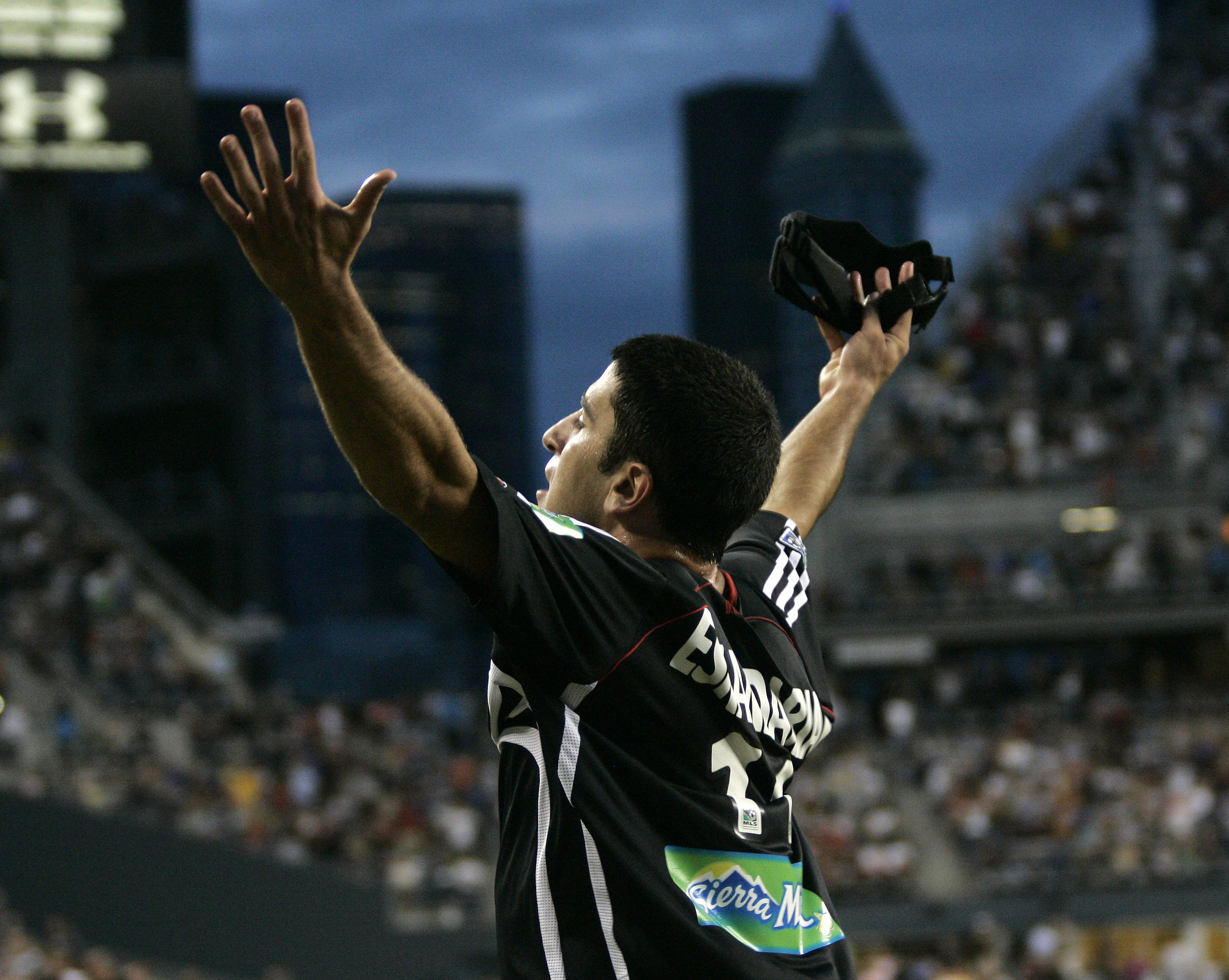
But I still felt that something wasn’t right. The pain, the pressure, the weight in the back of my head — they just wouldn’t go away. I returned to training, where all my coaches and trainers and teammates knew that doctors had cleared me to play. So the mental warfare began. Do I just suck it up? If I’ve been cleared I must be fine, right? No athlete ever wants to be “that guy” sitting out. Ever. Especially for “headaches.”
I felt like I had no choice. I began playing again. I had never before depended on painkillers, but suddenly I needed them badly. After training, my symptoms would get even worse. How many Tylenol am I supposed to take before the pain goes away?
The locker room was not a good place for me to vent my frustration. Every guy in there was playing through some sort of injury. Any mention of my discomfort and the ribbing would start.
Man, you’re sitting out for that?
Oh, trying to get another vacation day?
I wish I could get a day off every time I had a headache.
Nobody understood what I was going through. But I was determined to beat this thing. I focused all my energy on sucking it up, getting back on the field — for my livelihood, for my career. After missing games for three straight weeks, I was back training and finally set to return to the starting lineup.
But a few days before the game, as I was driving home to my Georgetown apartment after practice, I suddenly experienced a headache so sharp that I could actually hear it. You know that sound when a microphone screeches? That terrible, piercing ring that keeps rising?
I had to close my eyes. I swerved across three lanes of traffic. How I didn’t end up in a car accident I’ll never know.
I immediately called my trainer and asked to meet with a new neurologist in order to get a second opinion. The next day at the doctor’s office, I told him everything I had been through, starting with the collision in the first game of my rookie year. He just looked at me in disbelief.
“If you play soccer and you get hit in the head again, you might die,” he said.
He told me that I would have to be shut down for a minimum of two months, until I was completely symptom free. No physical activity — nothing that would raise my heart rate until the headaches went away.
For the next 10 months, I was a ghost.
I just felt isolated and helpless. And honestly, I was terrified about not knowing what was going to happen. If I was going to recover, or if the depression was going to consume me.
I stopped answering the phone. I stopped going out with my friends. I used to be the happiest guy in the locker room, always ready to share a story or play a practical joke. Now, I would sit in my apartment and watch the hours go by. I struggled to eat more than one meal a day. It was torture to go to games at the stadium to support my teammates. The atmosphere at RFK — which I had once thrived on — now triggered headaches. The thing I loved most in this world had been taken away from me and I didn’t know what to do.
I just felt isolated and helpless. And honestly, I was terrified about not knowing what was going to happen. If I was going to recover, or if the depression was going to consume me.
The worst part about my recovery was that no one was able to see what I was going through. To the naked eye, you would have thought I was fine.
I wasn’t. I didn’t know if the headaches would ever go away. If I’d ever feel like myself again. I didn’t know if I’d ever return to the field.
Most people thought I was done. About a week before one of the last games of the season, I got Facebook messages from members of the Screaming Eagles and Barra Brava, two D.C. United supporters groups.
“At the next match just make sure you have a good view of our supporters’ section in the 11th minute.”
That weekend, I went to the match and looked to where the Screaming Eagles sit. At the 11th minute, they held up a huge banner.
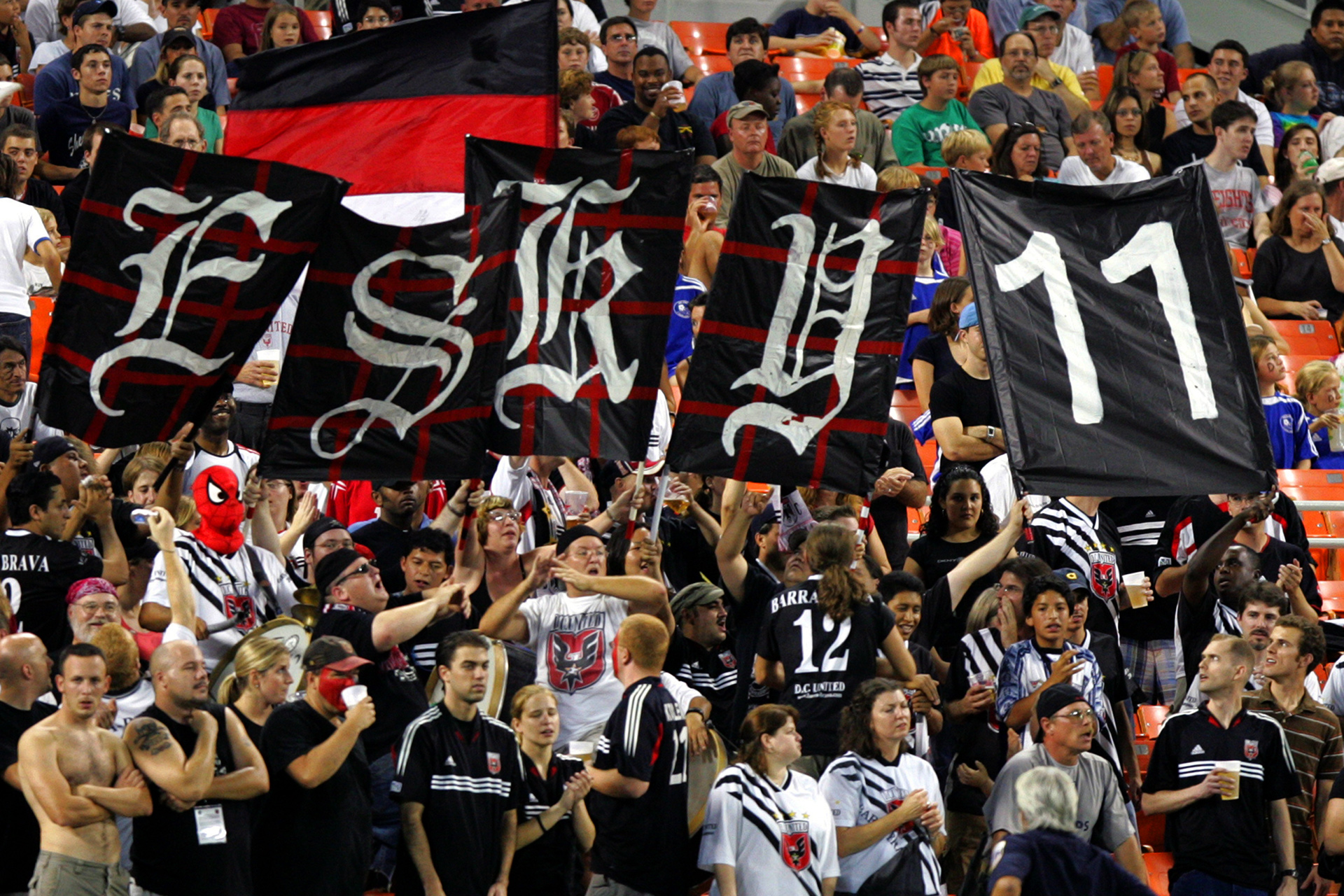
I got pretty emotional about it. I mean, of course it was an incredible gesture from the fans to let me know that they hadn’t forgotten about me —but it was also like, Holy shit, it’s as if I’ve died.
At that point, it actually felt like I already had. I was pretty much ready to risk my life for the game. I was only 22, and I might have been romanticizing things a bit, but more than once I had thought to myself, I’d rather die on the field than never play again.
It all sort of reached a boiling point when I went back home to New Jersey for the off-season. I’d always been close with my parents, but because of everything I’d been going through, I was not a pleasant person to be around. When I was living in D.C., I had grown increasingly frustrated any time they would call to ask if I was feeling any better.
“No, I still have headaches. Every day is the same. Please stop asking.”
Being back home, I had family support to lean on, but I rejected it. I started to feel sorry for myself, and with the holidays around the corner, I became annoyed about how cheery everyone was. I thought, My life’s work is being taken away from me. I have no idea if I’ll ever get better, and you want me to buy presents, put up Christmas decorations and sing carols?
I knew that I had to start digging myself out the hole I was in — not just to play soccer again, but to have any sort of life period. I set up a treadmill that my brother and I had gotten for my parents and started running. Two minutes without a headache. Next day, five minutes. The next, 10 minutes. I started doing crossword puzzles to keep my brain active. I made sure my brain was at full rest for a certain number of hours a day — no TV, no reading, no straining whatsoever. I basically recalibrated my entire life.
Soon, the weight and the pressure in my head started to subside, and life felt more … normal. And when preseason rolled around in February, I had been symptom-free long enough to rejoin the team. We took things easy at first, but eventually, I found myself back on the pitch at RFK Stadium for our season-opener — and scoring off a leftfooted volley.
I knew there were still uncertainties with my head, but I made the All-Star team again that season, and was one of the league’s top goal scorers. I even scored in an exhibition game against Real Madrid in front of 70,000 fans. I was back. My teammate Josh Gros started calling me “the Truman Show.”
“Your life couldn’t be any more scripted,” he said.
I have to admit, everything felt so surreal. I thought, Am I still concussed and dreaming all of this? I played every game and celebrated every goal like it was my last, because I knew it could have been.
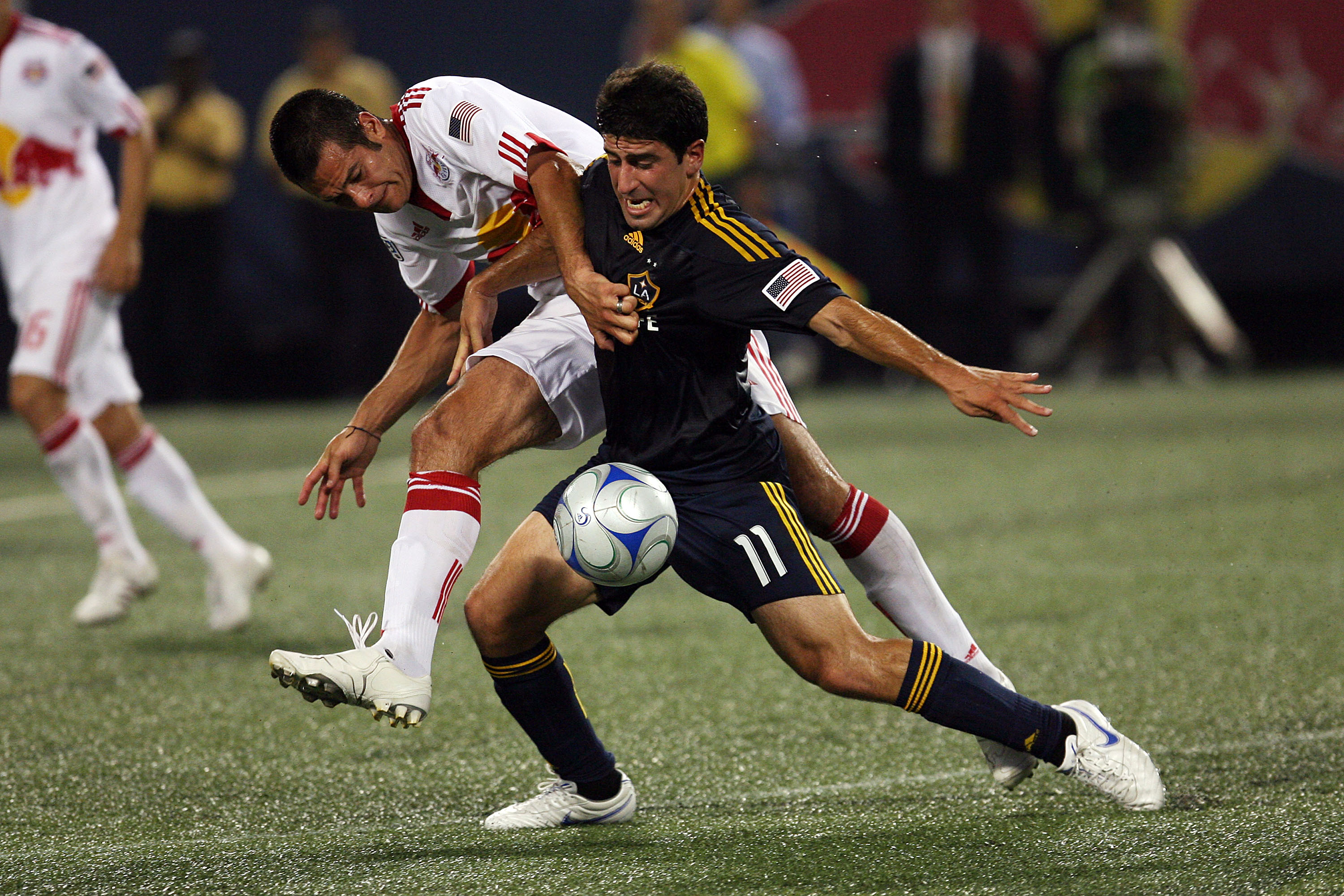
And four years later, on July 19, 2009, I did play my last game. Call it piss-poor luck or a heartbreaking twist, but I suffered my fourth concussion while playing for the L.A. Galaxy when an opposing defender inadvertently cleared the ball into my face. Once again, everything went black. I couldn’t breathe. It felt like I was swallowing my tongue. I had broken my nose and started spitting out blood. My old symptoms had returned. This time, worse than before.
I tried to convince myself that I could pull off another comeback. But this time, my doctors and coaches weren’t willing to take the risk. I wasn’t cleared to play.
“If you were my son, I’d tell you to stop,” my coach at the time told me.
I went from living in paradise in Hermosa Beach to once again being consumed by depression — steps away from the sand and the ocean, but confined to the darkness of my apartment. I tried to fight it as best as I could. I kept myself busy and started doing some TV broadcasting work. I started taking business courses. I was making new friends. But none of it helped me escape my reality. I could feel myself spiraling downward and I knew I needed change. So I moved back to Charlottesville, to finish up my degree at UVA and find an escape from soccer.
At school, new challenges awaited. The damage to my brain was worse than before. I struggled to focus and began experiencing vertigo.
One day in Charlottesville, after finishing a light workout my body suddenly went into shock. My head began pounding. I started shaking. I felt nauseous. I was fading. Sitting in the passenger seat of my friend’s car while he rushed me to the hospital, I quickly ruled out any thought of a comeback.
“It’s over,” I said as we drove up Route 29. “I’ll never play again.”
“Dude, what?” my buddy said.
“I’ll never play soccer again.”
“Uh, yeah? I’m taking you to the hospital to make sure you don’t die and you’re worried about whether you’ll kick a ball again?”
The next day, I wrote it down. I’m never going to be a professional soccer player again.
‘It’s over,’ I said as we drove up Route 29. ‘I’ll never play again.
When I look back on my career, I think about dribbling a ball around my dad’s soccer shop and dreaming about playing in front of thousands of people. I think about the great teams and teammates I played with. I think about how I got to share the field with some of soccer’s biggest stars — Messi, Cristiano Ronaldo, Ronaldinho, Pirlo, David Beckham.
Yet something else also happened on those fields that changed my life. And it’s still happening.
It wasn’t until I went through head injuries myself that I realized how many people are struggling with the aftereffects of concussions. Even over the course of my own recovery, I haven’t wanted to open up about what I have gone through. I didn’t want to talk about the dark places my concussions took me, the depression, the isolation, the helplessness. How could I help others if I couldn’t help myself?
But, I’m finally at a point where I have learned to manage my brain injury, and it’s time I start sharing my story about concussions in soccer. It’s time that all soccer players do. As I’ve started to be more open about my own struggles, dozens and dozens of players of all ages have reached out to me asking for guidance or advice.
I remember when I was recovering from my third concussion, I got a call from my agent. He told me that former MLS midfielder Ross Paule wanted to talk to me. A few days later, my phone rang.
“This isn’t the life you want,” Ross told me, and warned me not to rush to come back. He’d suffered concussions while playing for the Columbus Crew and had tried to play through them — until they eventually forced him to retire.
“I can’t drive after dark,” he said. “I can’t play with my little girl. You don’t want this.”
I remember I was sitting in the Galaxy dressing room after my fourth concussion when David Beckham approached me.
“Mate, I’m so sorry you’re going through this. Same thing happened to one of my teammates at Manchester United. He sat in a dark room for a month.”
As an assistant coach now for the NASL’s New York Cosmos, I sat down recently with one of our players who had suffered a concussion. I told him about my experiences and how he needed to be careful. He just stared back at me. In his face, I saw the same 20-year-old I had been. I knew how much he wanted to be on the field and how all he wanted to hear was that he was cleared to play. It hurt me that he couldn’t see what I had gone through. If only there was a scar to show….
For all the progress we’ve made in the last few years, education about head injuries still needs to be emphasized more by leagues, coaches and trainers. There is still no clear-cut diagnosis process or treatment method.
I still can’t sit in the back of a car without feeling nauseous. I can’t yell throughout practices or games. I can’t raise my heart rate too high without getting headaches. But I decided a few years ago to focus on what I can do. And much of that is not taking things for granted anymore — like being able to go outside and run, which led to running in my first marathon this past month.
And another thing I can do is talk about a serious problem — one that is growing —in our sport. We all need to keep talking about it — so that no one has to experience what I did.










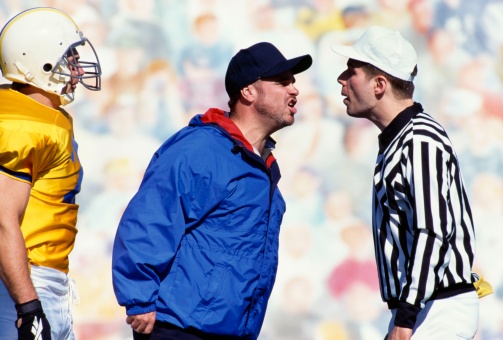
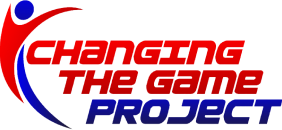
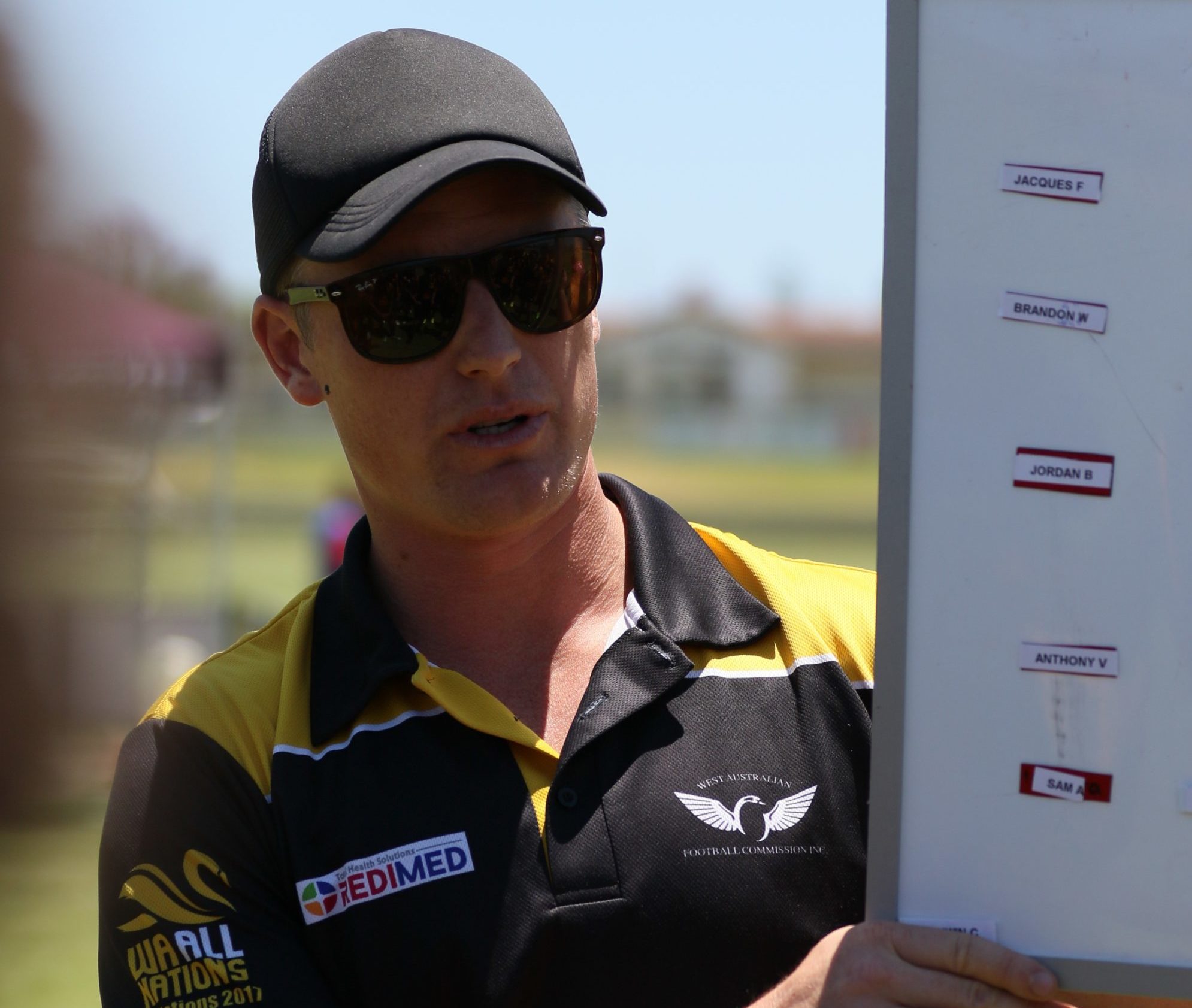
Comments